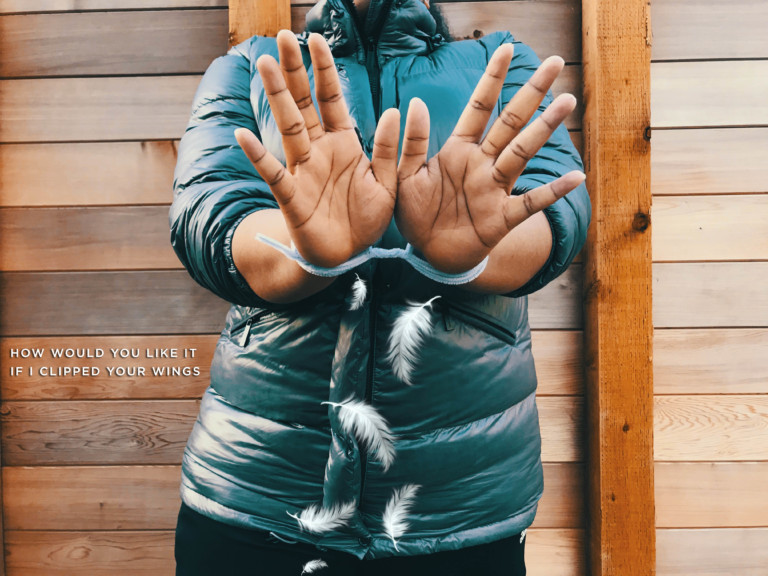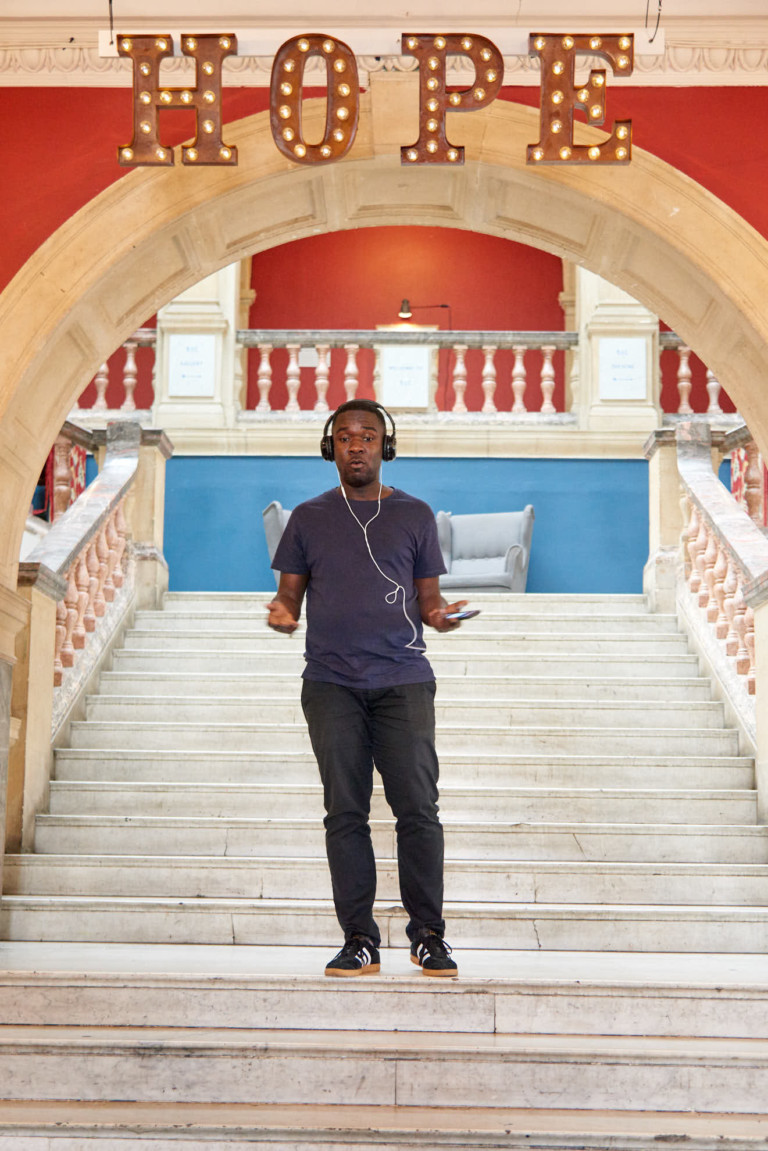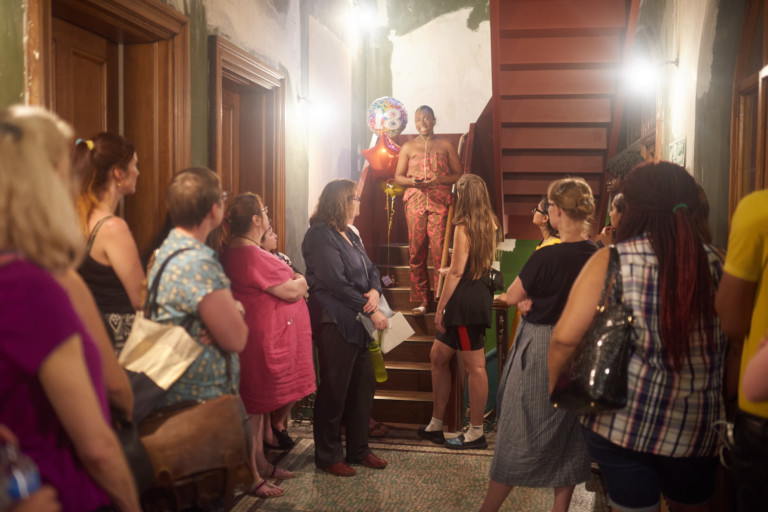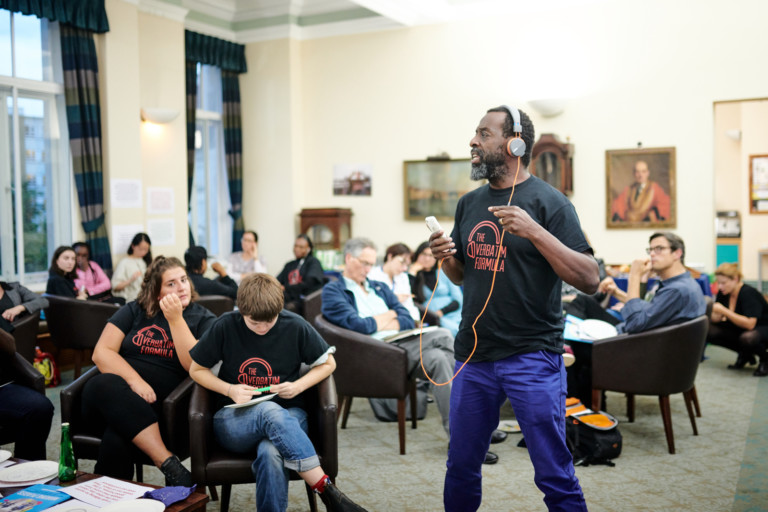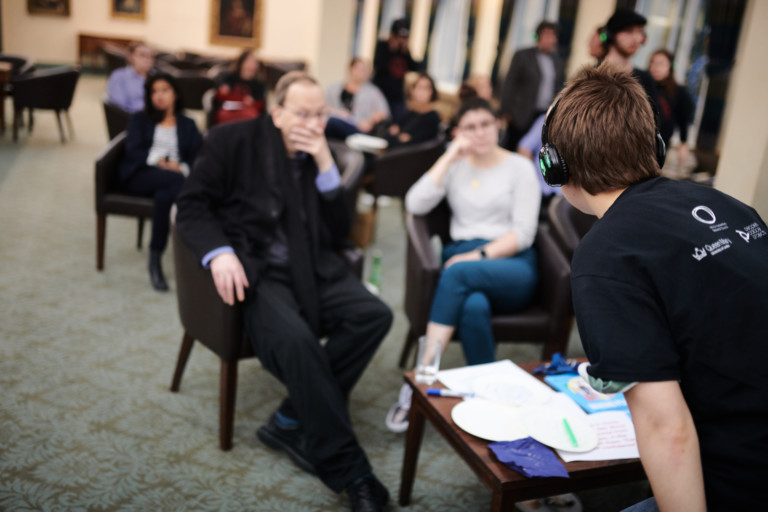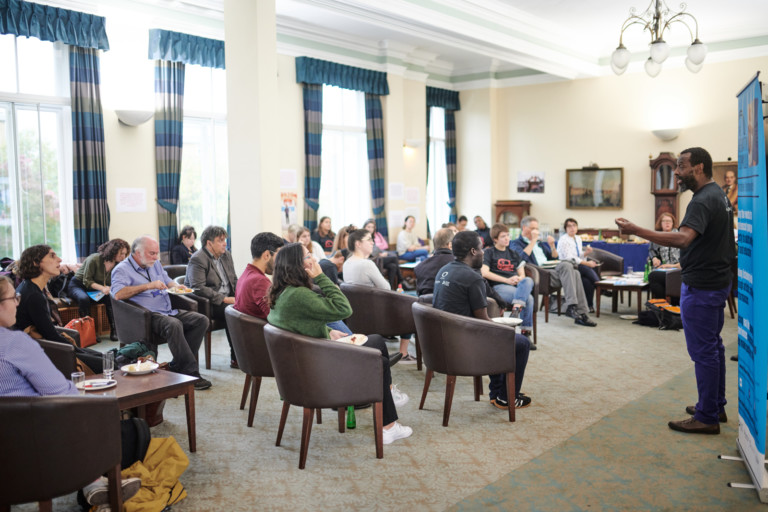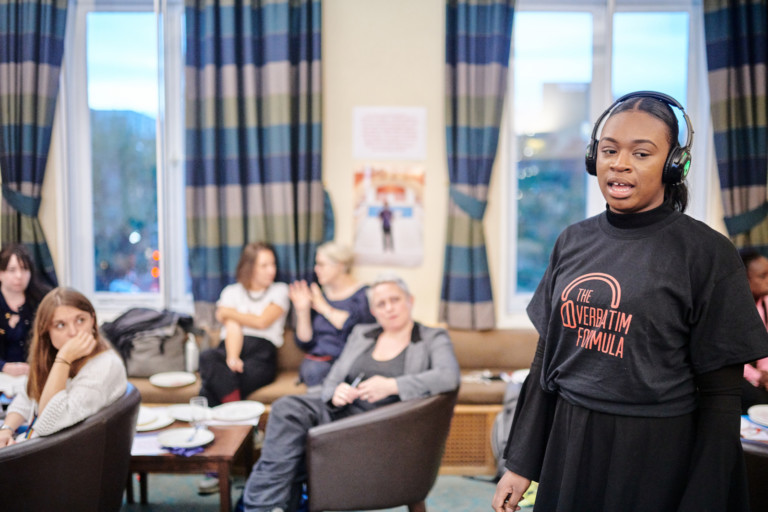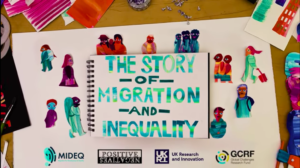The Verbatim Formula- Hear it, See it
Care experienced young people share their personal stories into a verbatim theatre practice raising awareness, building trust and pushing for policy changes.

Project Overview
How can we change things for the better through listening?
The Verbatim Formula was initially developed to rethink the way we listen to young people in the Care System in the UK. It is a collaborative method that involves policy-makers, artists, social workers, foster carers and, most of all, those who have spent time in the system. Young people in care, and older people who have experienced being in care are brought to centre stage to have their voices heard.
Introduced by an academic team based at Queen Mary University of London and The Royal Central School of Speech and Drama, University of London, the TVF methodology facilitates these conversations by recording and anonymously sharing the voices and experiences of these young people. They can talk freely about their lives, from the most difficult to the most loving and rewarding experiences, and in doing so develop their sense of confidence and security.
The method provides a creative and non-judgemental space for young people to share their life experience as evaluators of the services that are responsible for their education, care and wellbeing.
By listening to these testimonies, using Verbatim Theatre technique, professionals, responsible for these vulnerable people, can understand them better and ultimately use their power to improve policies and change the system for better.
Rash, social worker at a TVF event
How it works:
The project is committed to supporting young people from the most disadvantaged of backgrounds and helping them fulfil their potential. So far, TVF has collaborated with over 100 young people in UK Local Authorities. It has also proved to be adaptable to different settings and environments, as it was well received by the Scottish Parliament, UK Office for Students, UK Department for Education, Greater London Authority and a number of universities and Boroughs in London.
Dr Sylvan Baker, Lecturer in Applied Theatre, Royal Central School of Speech and Drama
The participatory arts research project empowers young people and makes their voices heard, using verbatim theatre and other creative methodologies
Care-experienced young person
The power of listening: a short film
In the Summer 2022, TVF offered filming workshops and trainning to care-experienced young people and foster carers. Together they produced this beautiful piece below
About Love
About Love was filmed during workshops with care-experience artists at Contact Theatre in Manchester.
More than Skin Deep: What is your dream of care?
TVF has partnered with Battersea Arts Centre, in London and Contact Theatre, in Manchester to run a total of 10 workshops with care experienced young adults.
Using dance, music, verbatim, storytelling and beatboxing, they share uplifting and challenging reflections on the care system. This participatory process culminated in performances followed by reflective discussion on how we change the stigma and negativity attached to being in care.
Watch the performance short film at the BAC, London (March, 2022).
Film by Paula Siqueira
The foster care system in the UK
Since the project began in 2015, the number of young people in care in the UK has increased to 108,000 in 2022. There are insufficient foster carers who can provide the support that is needed for vulnerable young people. Such instability exaggerates the pressure on care-experienced young people within their vulnerability to mental health, and jeopardises the continuity needed for their educational and life success.
Care experienced young people have repeatedly said that there could be more space for trust and empathy in the way in which adults care for young people.
Anthony, 22-years, care-experienced
Our hope is to inspire positive potentials of care."
